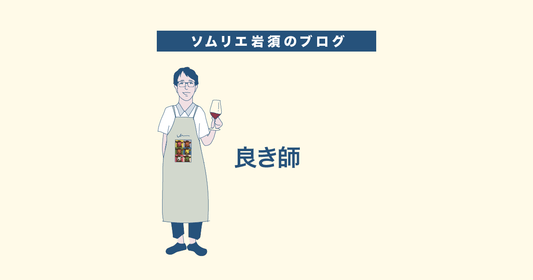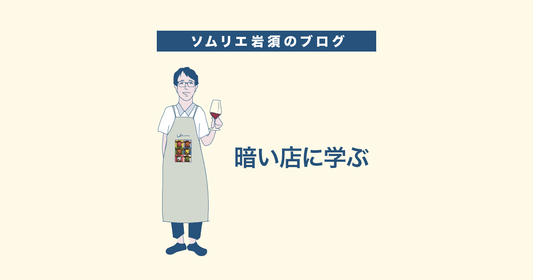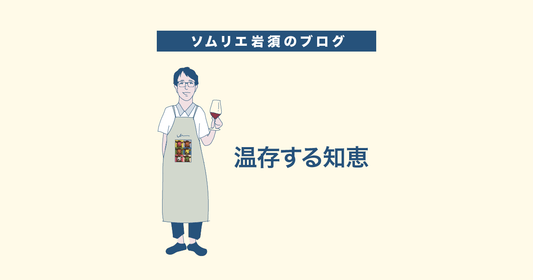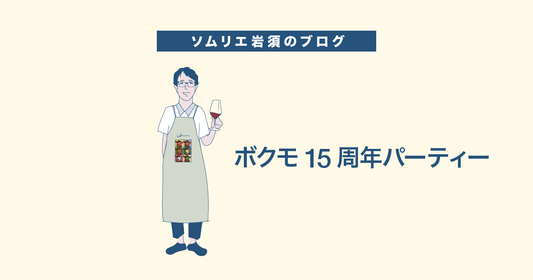
"I can't find the words to adequately describe my state of mind."
I've always thought that way, especially when I was in my 20s . I always felt like what I was thinking and what I was saying didn't match up.
For example, you may accidentally blurt out a cheeky remark to a senior at work that even surprised you.
The words he used to smooth things over made me freeze even more... I still shiver when I think about it.
The same goes for when you want to say kind words. Whenever you want to say something affectionate to someone, the words that always come out are cheap, shallow, and full of awkwardness.
"Oh, I'm such a frivolous guy," I think to myself, feeling depressed.
However, after I turned 30 , I chose a job that required me to stand behind a bar counter every day, and somehow, I began to be able to put what was in my head into words with less awkwardness.
Perhaps the amount of conversation I had with customers has helped me to improve a little.
I'm finally starting to get the feeling that, "Ah, what I want to say right now matches the cards (word variations) I have in hand."
And now I'm in my mid- 40s .
Of course, it's extremely difficult to put everything you're thinking into words, but compared to when I was younger, I'm finding more and more often that I can find words that perfectly match a certain feeling.
With that in mind, here's how I feel now...
It's "hurry."
This dialect fits perfectly.
"Osogai" is a dialect word in Aichi and Gifu that means "frightening" or "scary" (according to the dictionary, it seems to be used in Kazusa and other places as well).
However, what I feel is not simply "frightening."
My grandmother, who passed away last year, was a farmer deep in the mountains of Gifu (closer to Fukui Prefecture), and I feel that the word "osogai" she used has a slightly different nuance.
" Oh my goodness , I've been given so many radishes ! It's frightening ."
This is ``Osogai.''
Is it hard to understand? Of course it is.
So let me explain a bit.
"Koroshi (adjective, shiku conjugation) " has a meaning slightly different from its original meaning of "scary" and means " extremely severe" or "extraordinary."
For example, when we want to say something that is "extraordinarily large in number," we say "a frighteningly large number ." I believe this expression originates from the feeling that something is extraordinarily large and frightening .
In other words, grandma's line " It's a frightening thing" does not simply mean that it is a frightening thing, but rather has the nuance of "We received such extraordinary consideration that it feels frightening."
I think this phrase well describes the mindset of people in the countryside.
Growing radishes involves plowing the field, sowing the seeds, watering them, pulling out weeds, and applying fertilizer.
Then, he pulls out the radish, which has now grown big and heavy, and carries it to the dirt floor of a friend's neighborhood house, saying, "Tabetokuryo (Please eat it)."
The recipients are also farmers, so I can imagine how difficult the process must have been. I feel a sense of awe at the time and effort that went into it.
"I'm sorry you had to do that. It's an awful kindness."
I think that feeling is conveyed in the expression "osogai."
In fact, I think when my grandmother used this phrase, she did so with the utmost gratitude in mind .
So, right now my heart is feeling anxious.
What's scary is this .

The crowdfunding campaign for the opening of the New Zealand wine specialty store "Bokumo Wine" ended yesterday, and we received a whopping 2,758,600 yen in support, far exceeding our goal of 2 million yen. The number of backers was 212 !
Seriously, hurry up!!
I think how my grandmother felt when her neighbor brought her a huge amount of radishes is probably the same as how I feel right now.
In this COVID-19 pandemic, no one is living a normal life. Everyone is trying their best to live their lives in their own way, in their own positions, and trying to overcome these rough waves. Yet, people have agreed with our project and said they are willing to donate money.
This is an incredible kindness.
I have to somehow respond to that! I have to live up to their expectations!!
That's why we must now re-examine the New Zealand wines that arrive to us so that people can say, "This is good."
This is our first large-scale shipment, and we will pack and ship the items with a sense of urgency in mind, so that they will arrive safely to everyone.
It will take a little time, but please wait a little while. By the time it arrives, it will be early summer, the season when New Zealand wines start to show their true potential. I'm sure it will be delicious to drink.
Finally, let me say it one more time.
This is very late! Thank you very much!
This week's wine and snacks
OSAWA WINES FLYING SHEEP HAWKES BAY ROSE 2015
Osawa Wines Flying Sheep Hawk's Bay Rose 2015

Osawa Wines is a winery run by a Japanese owner, Taizo Osawa. This rosé is made using the Italian grape variety Sangiovese, which is rare in NZ .
It has a pleasant scent of cherries and strawberries plus the scent of white flowers, giving it a very elegant impression.
It has a clean, dry taste and a slightly high alcohol content of 13.5% , with a long aftertaste and a pleasant astringency.
This is what I combined.

Penne in tomato sauce with mackerel and onion filling.
Oh no!
Dry rosé wine has a very wide range of applications and can be paired with everything from appetizers to fish and light meats, but I am also open-minded and will accept both white and red wines, so I chose to pair it with penne pasta in tomato sauce.
Of course it will happen.
For rosé, it would be better to bring something that doesn't seem to go well with wine, like ethnic or Chinese, and then have the surprise of saying, ``It actually goes well with wine!''
Today, we were paired with two easy-going, good-natured people.





